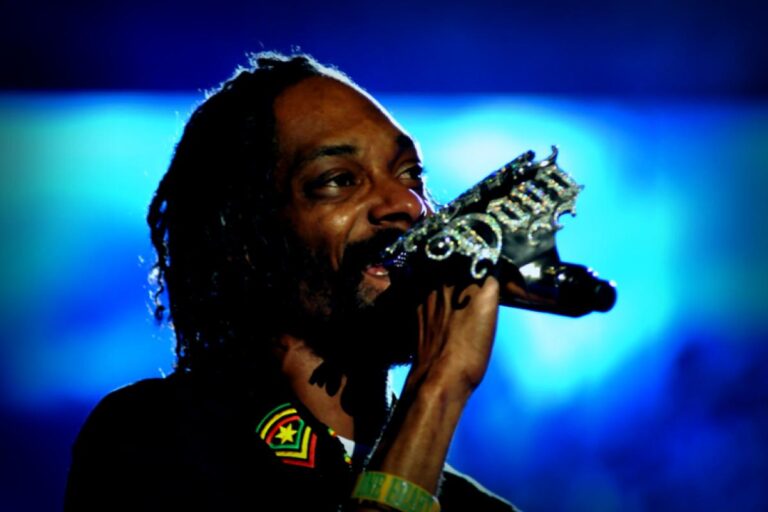Picture this scenario: It’s the early ’70s in Britain, and you’re in an up-and-coming band that’s concocting a unique mix of heavy metal and prog rock. Your music catches the fancy of none other than Tony Iommi, the guitarist from Black Sabbath. He not only wants to sign you but also offers to produce your first album. This has to be the gateway to big success, right?
But that’s not how it played out for the guys in Necromandus. Their journey was full of obstacles—not just once, but twice!
Let’s rewind to the late 1960s when drummer Frank Hall and bassist Dennis McCarten were part of a band called Heaven. After Heaven called it quits, they partnered up with vocalist Bill Branch and guitarist Baz Dunnery, who had just left another band named Jug. After experimenting a bit with a rather risqué name, Urinal, they eventually settled on Necromandus—thanks partly to a little mix-up.
In an interview with Cumberland News & Star back in 2010, Hall explained, “I got mixed up with Nostradamus,” adding, “But it sounded good, so we kept it.”
Their music was as compelling as their name, showcasing incredible talent, especially from Dunnery, whose guitar skills elevated the band’s complex sound. Hall found himself in contention for Phil Collins’ former role in Genesis, and with McCarten’s rhythm section and Branch’s powerful vocals, Necromandus was rapidly gaining a local reputation—including significant support from Iommi, championing their cause.
As Hall recalled in a chat with Classic Rock Magazine, the camaraderie with Sabbath started way back. “I’d never heard anything like it,” he said, reflecting on watching Iommi with his first band, Mythology.
Seizing an opportunity, Iommi facilitated Necromandus’ signing with his management firm, Tramp Entertainment, giving them a shot with the label Vertigo. Soon enough, they were in the studio recording their debut, with Iommi even laying down tracks with the group.
Facing Crippling Setbacks
Everything seemed to be falling into place until things began to unravel. The initial recording sessions went smoothly enough, but disaster struck when it came time to tour as the opening act for Sabbath—Dunnery quit without warning.
“Baz couldn’t do the tour. He had a fear of flying,” recalled Hall. “He just disappeared and didn’t come back. I sensed something was off. We were scraping by, barely making ends meet.”
The main hurdle arose when Vertigo lagged on releasing their album, effectively stalling their momentum. Money was tight, and the lack of effort from the label rear-ended the band’s excitement for what could have followed their scheduled tour. When Iommi insisted they find a new guitarist or part ways, it wasn’t long before Necromandus disbanded, leaving their debut unreleased and collecting dust.
It was one setback too many. By 1977, Hall and Dunnery found themselves playing in a cover band, exchanging dreams for a paycheck.
The Almost-Solo Career for Ozzy
Despite everything, dreams wouldn’t die for long. A former roadie from Necromandus, now with Sabbath, shared that Ozzy Osbourne was looking to start a new band post-Sabbath. This led to whispers of potential rekindling with Hall, Dunnery, and McCarten; needing Branch was washed away since Ozzy would handle vocals.
They formed what was called Blizzard of Ozz, but from the get-go, it was apparent that working with Ozzy was going to be complicated. His unpredictable lifestyle wasn’t conducive to creativity. Hall recalled that “You’d shove him in the shower… then he’d show up wrecked later, ready to work.” But after realizing their styles didn’t mesh well—Necromandus leaning toward the prog while Ozzy preferred a heavier approach—the project fell apart.
Osbourne’s brief stint with a different lineup led him back to Sabbath, leaving the remnants of that surface-level band untethered once again. Following the forgettable previous attempts, and losing all four original members, the name Necromandus seemed to fade into obscurity.
Years passed, with most unaware of Necromandus’s innovative spirit until a cult following developed around their music. After decades, the band’s music found life again in a 1999 official debut titled Orexis of Death. Afterward, in 2010 Rise Above Records would release a remastered version that mixed live showcases with their recordings.
But weirdly enough, a resurrection came. Due to passing ties, Hall got the idea to reform things in 2016, and he approached John Branch, Bill’s son, to take over vocals. They welcomed him openly into the fold.
In Hall’s words, “It was a serendipitous moment. When I asked John to join, I had a feeling he would blossom… and he truly did.” That partnership unfolded into a 2017 release, breathing new energy into what had once died out, leading Hall to reflect on those earlier days filled with ups and downs.
“Part of me still wishes we’d made it something bigger,” he often notes. “But in the end, it was like a wild ride—like Disneyland every day.”



















